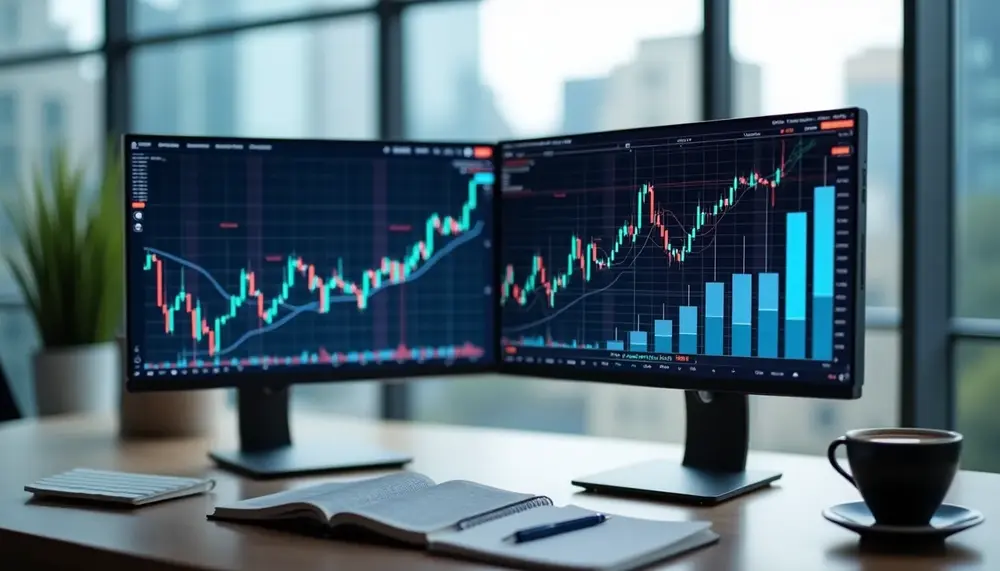Market Maker
Market Maker
Within the realm of trading, the term "Market Maker" holds a key position. For any newcomer to trading, understanding what a market maker is and the role they play can greatly enhance their trading exploits.
Who are Market Makers?
Market Makers are financial institutions that buy and sell financial instruments like stocks, bonds, derivatives, or currencies. Their role in trading, however, goes far beyond this simple definition. They are pivots of the financial market, responsible for maintaining smooth and continuous trade flow.
The Role of a Market Maker
A Market Maker is like a wholesaler in trading. They stand ready to buy or sell stocks at any time. Their main role is to ensure there's always a market for traders to engage in. They do this by providing bid and ask prices for financial instruments, thereby creating a market. These prices are known as Market Maker's Quotes.
Why Market Makers are Essential
Market Makers are, in a way, the lubricants of the trading realm. By actively buying and selling financial instruments, they ensure liquidity in the market. This means traders can always buy or sell, regardless of the market's size or volatility. Market Makers provide traders with the assurance that they can always trade, no matter the market conditions.
The Profit Aspect
The question arises, how do Market Makers make money? The answer lies in the difference between the price a Market Maker is willing to pay for an asset (the bid price) and the price at which they are willing to sell it (the ask price). This difference is known as the bid-ask spread, and it's the primary way Market Makers profit.
To Wrap Up
In the grand theatre of trading, Market Makers are indispensible backstage workers. They ensure the show goes on, regardless of the conditions. Understanding the role of a Market Maker can offer valuable insights for both novice and experienced traders.
Blog Posts with the term: Market Maker

DeFi trading strategies involve leveraging smart contracts for activities like lending, borrowing, and trading without intermediaries, with popular methods including arbitrage, yield farming, staking, market making, and flash loans. These strategies offer advantages such as accessibility, transparency, lower costs, control...

ByBit is a cryptocurrency derivatives exchange launched in 2018, offering tools and features for both novice and experienced traders to enhance their trading strategies. It differentiates itself with leveraged trading options, an advanced order system, high-performance matching engine, comprehensive customer...

dYdX is a decentralized exchange (DEX) on the Ethereum blockchain offering advanced trading options like spot, margin trading, and derivatives without intermediaries. It features an order book model for price matching, leverages off-chain order books with on-chain settlement using StarkWare’s...

The article explains the concept of liquidity in the cryptocurrency market and its importance in trading. It discusses how liquidity affects the speed of transactions, the stability of prices, and the overall trading experience. It also provides pros and cons...

Koinly is a cryptocurrency tax management tool that automates transaction tracking across various exchanges and wallets, generating accurate and compliant tax reports for multiple jurisdictions. It offers features like real-time portfolio tracking, diverse cryptocurrency support, customizable dashboards, and integration with...

Altcoin trader fees, including maker and taker fees, significantly impact profitability and vary across exchanges with different fee structures. Traders should compare these costs on various platforms to optimize for lower transaction expenses while considering trading volume discounts and overall...

SushiSwap is a decentralized exchange that uses an automated market maker (AMM) model to allow users to trade cryptocurrencies without intermediaries, rewarding liquidity providers with transaction fees and SUSHI tokens. The platform emphasizes community governance through its DAO structure, enabling...

Pancake Swap is a DeFi platform on the Binance Smart Chain that allows users to swap cryptocurrencies without intermediaries, using an AMM model for liquidity and offering additional features like yield farming. It provides lower transaction fees, fast trades, and...

Uniswap is a decentralized exchange that uses an Automated Market Maker system to enable permissionless and automated cryptocurrency swaps, offering liquidity providers the chance to earn fees. It operates without centralized authority or traditional market-making methods, relying on smart contracts...

Trading floors, once bustling hubs of human interaction and open-outcry systems, have evolved into hybrid spaces combining traditional expertise with electronic efficiency to adapt to modern financial markets. While digital platforms dominate today’s trading landscape, the legacy of physical trading...

Trading Ahead involves market makers prioritizing their own trades over clients', undermining investor interests, and is distinct from front-running or insider trading; regulation like FINRA Rule 5320 aims to maintain fairness in the markets by preventing such practices....

DeFi Quant Trading combines finance and technology by using complex mathematical models for trading decisions in the decentralized blockchain-based financial landscape, offering strategies like mean reversion, momentum trading, statistical arbitrage, and market making. Essential tools include data analytics platforms, algorithmic...

Decentralized Finance (DeFi) quantitative trading combines transparency, real-time data, and algorithmic precision to revolutionize financial markets by enabling innovative strategies like statistical arbitrage and leveraging on-chain data for predictive accuracy. This paradigm shift democratizes finance, offering opportunities for both experts...

